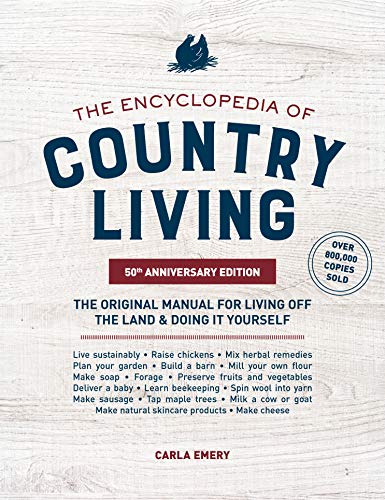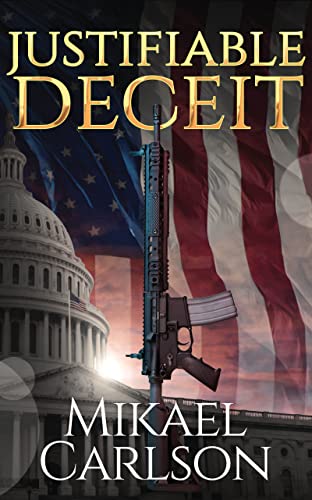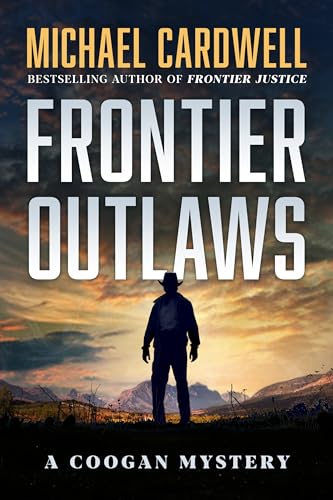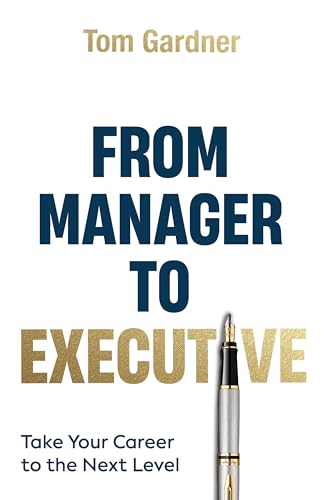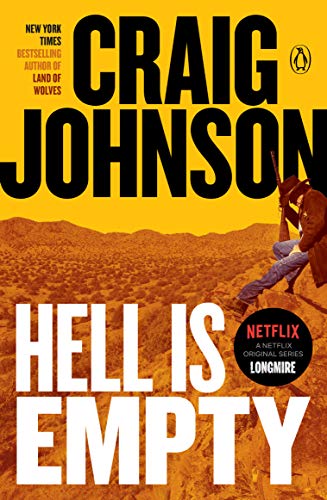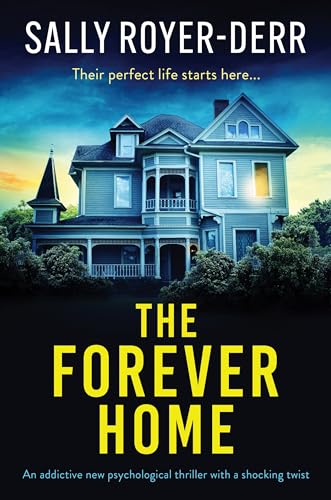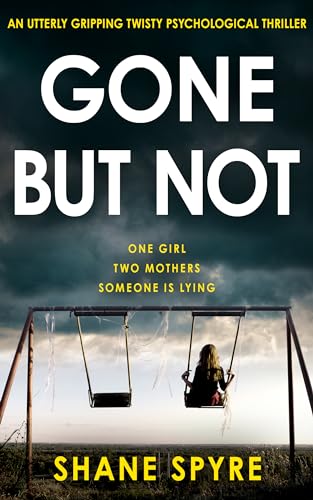Last call for KND free Romance excerpt:
The Law of Moses
by Amy Harmon
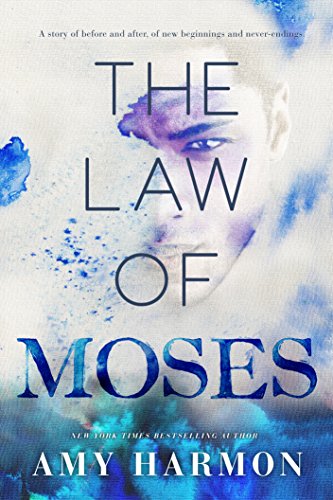
Or check out the Audible.com version of The Law of Moses
It all happened before I was born, and by the time I met Moses and my mom told me all about him, the story was old news and nobody wanted anything to do with him. People love babies, even sick babies. Even crack babies. But babies grow up to be kids, and kids grow up to be teenagers. Nobody wants a messed up teenager.
And Moses was messed up. Moses was a law unto himself. But he was also strange and exotic and beautiful. To be with him would change my life in ways I could never have imagined. Maybe I should have stayed away. Maybe I should have listened. My mother warned me. Even Moses warned me. But I didn’t stay away.And so begins a story of pain and promise, of heartache and healing, of life and death. A story of before and after, of new beginnings and never-endings. But most of all . . . a love story.
* * *
Free and Bargain Quality eBooks delivered straight to your email everyday – Subscribe now http://www.bookgorilla.com/kcc
* * *
And here, for your reading pleasure, is our free romance excerpt:
Chapter 1
Georgia
They found Moses in a laundry basket at the Quick Wash, wrapped in a towel, a few hours old and close to death. A woman heard him cry and picked him up, putting him against her skin and wrapping them both in her coat until she could get help. She didn’t know who his mother was or if she was coming back, she only knew that he wasn’t wanted, that he was dying, and that if she didn’t get him to a hospital soon, it would be too late.
They called him a crack baby. My mom told me crack babies are what they call babies who are born addicted to cocaine because their mothers do drugs while they are pregnant. Crack babies are usually smaller than other babies because most of them are born too early to unhealthy moms. The cocaine alters their brain chemistry and they suffer from things like ADHD and impulse control. Sometimes they suffer from seizures and mental disorders. Sometimes they suffer from hallucinations and hyper sensitivity. It was believed that Moses would suffer from some of these things, maybe all of these things.
They shared his story on the ten o’clock news. It was a great story, a human interest piece—a little baby left in a basket at a dingy laundromat in a bad neighborhood in West Valley City. My mom says she remembers the story well, the pathetic shots of the baby in the hospital, hanging onto life, a feeding tube in his stomach and a little blue hat on his tiny head. They found the mother three days later, not that anyone wanted to hand the baby over. But they didn’t have to. She was dead. The woman who had abandoned her baby in a laundromat was pronounced dead on arrival from an apparent overdose at the very same hospital where her baby lay struggling for life, several floors above her. Somebody had found her too, though not in a laundromat.
The roommate, arrested that same evening for prostitution and possession, told the police what she knew about the woman and her abandoned baby in hopes of getting a little leniency. An autopsy of the woman’s body showed she had, indeed, given birth very recently. And later, DNA testing proved that the baby was hers. What a lucky little guy.
He was “the baby in the basket” in news reports, and the hospital staff dubbed him baby Moses. But baby Moses wasn’t found by the daughter of the Pharaoh like the biblical Moses. He wasn’t raised in a palace. He didn’t have a sister watching from the reeds, making sure his basket was pulled from the Nile. But he did have some family—Mom said the whole town was a buzz when it was discovered that baby Moses’s deceased mother was sort of a local girl, a girl named Jennifer Wright who had spent summers with her grandmother, who lived just down the street from our house. The grandmother was still in the area, Jennifer’s parents lived in a neighboring town, and a couple of her siblings, who had moved away, were still well-known by many as well. So little Moses had some family after all, not that any of them wanted a sick baby who was predicted to have all sorts of problems. Jennifer Wright had broken their hearts and left her family tired and shattered. Mom told me drugs do that. So the fact that she left them with a crack baby didn’t seem especially surprising. My mom said she’d just been a regular girl when she was younger. Pretty, nice, smart, even. But not smart enough to stay away from meth, cocaine, and whatever else she became a slave to. I imagined the crack baby, Moses, having a giant crack that ran down his body, like he’d been broken at birth. I knew that wasn’t what the term meant. But the image stuck in my mind. Maybe the fact that he was broken drew me to him from the start.
My mom said the whole town followed the story of baby Moses Wright when it happened, watching the reports, pretending like they had the inside scoop, and making up what they didn’t know, just to feel important. But I never knew baby Moses, because baby Moses grew up to be just plain Moses, juggled between Jennifer Wright’s family members, passed around when he became too much to take, transferred to another sibling or parent who then put up with him for a while before making someone else step in and take their turn. It all happened before I was born, and by the time I met him and my mom told me about him in an effort to help me “understand him and be kind,” the story was old news and nobody wanted anything to do with him. People love babies, even sick babies. Even crack babies. But babies grow up to be kids. Nobody really wants messed up kids.
And Moses was messed up.
I knew all about messed up kids by the time I met Moses. My parents were foster parents to lots of messed up kids. They’d been taking in kids all my life. I had two older sisters and an older brother who were out of the house by the time I was six. I’d been kind of an oops, and I ended up being raised with kids who weren’t my siblings and who came in and out of my life in stages and revolving doors. Maybe that was why my parents and Kathleen Wright, Jennifer Wright’s grandma and Moses’s great-grandma, had several conversations about Moses sitting at our kitchen table. I heard a lot of things I probably had no business knowing. Especially that summer.
The old lady was taking Moses in for good. He would be eighteen in a month and everyone else was ready to wash their hands of him. He’d spent time with her every summer since he was little, and she was confident they would do well together if everyone would just butt out and let her do her thing. She didn’t seem concerned about the fact that the month Moses turned eighteen she would turn eighty.
I knew who he was and remembered him from summer to summer, though I’d never spent any time with him. It was a small town and kids notice each other. Kathleen Wright would bring him to church for the few Sundays he was in town. He was in my Sunday school class, and we all enjoyed staring at him while the teacher tried to coax him into participating. He never did. He just sat in his little metal folding chair like he’d been heavily bribed to do so, his oddly-colored eyes roving here and there, his hands twisting in his lap. And when it was over he would race for the door and out into the sunshine, heading straight for home without waiting for his great-grandma. I would try to race him, but he always managed to get out of his seat and out the door faster than I could. Even then I was chasing him.
Sometimes, Moses and his grandma would go for bike rides and walks, and she would haul him into the pool in Nephi almost every day, which had always made me so jealous. I was lucky if I got to go to the pool more than a few times all summer. When I was desperate for a swim, I’d ride my bike to a fishing hole up Chicken Creek canyon. My parents had forbidden me to swim there because it was so cold and deep and murky—dangerous even. But drowning was preferable to never swimming at all, and I’d managed not to drown so far.
As Moses got older, there were some summers when he didn’t come to Levan at all. It had been two years since he’d been back, though Kathleen had been pushing for him to come stay with her permanently for a long time. The family told her he would be too much for her to handle. They told her he was “too emotional, too explosive, too temperamental.” But apparently, they were all exhausted and they gave in. So Moses moved to Levan.
We were both entering our senior year, though I was young for my grade and he was a full year older. We both had summer birthdays—Moses turned eighteen July 2nd and I turned seventeen August 28th. But Moses didn’t look eighteen. In the two years since I’d seen him last, he’d grown into his feet and his eyes. He was tall with broad shoulders and clearly-defined, ropy muscles that covered his lean frame, and his light eyes, strong cheekbones, and angled jaw made him look more like an Egyptian prince than a gang banger, which rumors claimed he was.
Moses struggled with his school work and had difficulty concentrating and holding still His family even claimed he had seizures and hallucinations, which they attempted to control with various medications. I heard his grandma telling my mom that he could be moody and irritable, that he had difficulty sleeping, and that he zoned out a lot. She said he was extremely intelligent, brilliant even, and he could paint like nothing and no one she’d ever seen before. But all the medication they had him on to help him focus and sit still in school made him slow and sluggish and made his art dark and frightening. Kathleen Wright told my mother she was taking him off all the pills.
“They turn him into a zombie,” I heard her say. “I’m willing to take my chances with a kid who can’t hold still and can’t stop painting. In my day, that wasn’t a bad thing.”
I thought a zombie sounded a little safer. For all his beauty, Moses Wright was scary looking. With his tapered body covered in bronze skin, and those funky-colored, light eyes, he reminded me of a jungle cat. Sleek, dangerous, silent. At least a zombie moves slowly. Jungle cats pounce. Being around Moses Wright was like befriending a panther, and I admired the old lady for taking him on. In fact, she had more courage than anyone I knew.
Being one of only three girls my age in the whole town made me a loner more often than I liked, especially considering neither of the other girls liked horses and rodeo the way I did. We were friendly enough to say hello and sit by each other in church, but not friendly enough to spend time together or pass the boring summer days in each other’s company.
It was an especially hot summer. I remember that well. We’d had the driest spring ever recorded, which led to summer wildfires popping up all over the west. Farmers were praying for rain and the sizzling nerves and sky-rocketing temperatures made tempers short and self-control shorter. There’d also been a rash of disappearances throughout the clustered counties of central Utah. A couple of girls had gone missing in two different counties, though one was thought to have run away with her boyfriend and the other was almost eighteen and her home life was bad. People assumed they were okay, but there had been a few similar disappearances in the last ten or fifteen years that had never been resolved, and it made parents edgy and a little more watchful, and my parents were no exception.
I’d grown restless and resentful, itchy in my own skin, eager to be done with school and on with life. I was a barrel racer and I wanted to hitch the horse trailer to my truck and follow the rodeo circuit, seeking freedom with only my horses, my projected rodeo winnings, and the open road. I wanted that so badly. But at seventeen, with disappearing females in the forefront of their minds, my parents wouldn’t let me go on my own, and they weren’t in any position to take me. They promised me we’d figure something out when I graduated and turned eighteen. But graduation was so far away, and summer stretched out in front of me like a dry, empty desert. I was so thirsty for something else. Maybe that was it. Maybe that was the reason I waded in too far, the reason I got in way over my head.
Whatever it was, when Moses came to Levan, he was like water—cold, deep, unpredictable, and, like the pond up the canyon, dangerous, because you could never see what was beneath the surface. And just like I’d done all my life, I jumped in head first, even though I’d been forbidden. But this time, I drowned.
***
“What are you lookin’ at?” I said sharply, finally giving Moses what I assumed he wanted, which was my attention. All the kids my parents took in soaked up attention like it was as necessary as air and they were all gasping to breathe. I hated it. Not the fact that they needed it from my parents, but that they also seemed to need it from me. I liked nothing better than being alone with the horses. Horses weren’t needy, and everybody else was so needy I thought I was going to lose my mind. Now Moses was here, in the barn, watching me, invading my time with Sackett and Lucky, my horses, sucking all the oxygen out of the room the way all the foster kids did.
Kathleen Wright had asked my parents if Moses could work out some of his new, un-medicated energy on our little farm. She said he would muck stalls, weed the garden, mow the lawn, feed the chickens, whatever they had available if they would help keep him busy that summer and into the school year if it all worked out. Those were all my chores, and I was happy to have him help if it meant I wouldn’t have to do any of them. But my dad found other things for Moses to do and Moses worked hard—so hard that my dad was running out of jobs. It would be impossible to keep him busy all summer.
Apparently, my dad had included cleaning the barn on the list and Moses had been stacking hay bales, sweeping, shoveling, and organizing tack like a mad man all morning. I didn’t know whether or not I wanted him there. Especially when he stopped suddenly and just stood, hands at his sides, staring. But Moses wasn’t looking at me. He was staring over my shoulder and his yellowish-green animal eyes were huge. He was holding perfectly still, which I’d never seen him do, not even once since he arrived. Moses didn’t respond to my question but his fingers moved, flexing and closing like he was trying to improve his circulation. It was what I did while waiting for the bus when I forgot my gloves. But it was June, unseasonably hot, and I doubted his fingers were cold.
“MOSES!” I barked, trying to snap him out of it. The next thing I knew he would be writhing on the floor, twitching, and I would have to do mouth to mouth or something. The thought of putting my lips on his lips made my stomach feel strange. I wondered if I could press my mouth to Moses’s, even if it was just to force air into him. He wasn’t ugly. I felt that funny swoosh once more, a slipping in my gut that wasn’t exactly unpleasant. Moses wasn’t ugly at all. He was strangely beautiful—different looking, especially those weird wolf eyes, and I had to admit to myself, on Moses, different looked good. It looked cool. Too bad he was cracked.
My parents used horses for therapy with the foster kids. In fact, theirs was a world-renowned program, all non-verbal kind of stuff, you know, because horses can’t talk. That was something my parents said in their sales pitch to make people laugh and put them at ease. Horses can’t talk, but sometimes, kids can’t talk either, and equine therapy—a fancy term for bonding with a horse and figuring things out about themselves by watching the horse —was how my parents made a living. That, and my dad was a vet, which was what I wanted to be when I grew up. Our horses were well-trained and used to kids. They knew to stand still when a kid approached, when a child was near. They were unfailingly patient. They would allow a stranger to slip a bridle on, even curling their lips to allow the bit. And children responded to them in ways that had the grown-ups using words like “miracle” and “break-through” whenever the troubled kids my parents took in returned to their families or moved on from ours.
Moses had been hanging around for the last two weeks, working, weeding, eating—holy crap could he eat—and generally getting on my nerves because he was so unsettling. He didn’t do anything wrong, exactly. He just made me jittery. He didn’t talk to me, which I convinced myself was his only redeeming quality. That and his cool eyes. And his muscles. I flinched, slightly repulsed at myself. He was weird. What was I thinking?
“Have you ever ridden a horse?” I asked, trying to distract myself.
Moses seemed to tear himself away from the daydream that had him standing and staring off at nothing.
His eyes re-focused on me briefly but he didn’t respond. So I repeated myself.
He shook his head.
“No? Have you ever been close to one?”
He shook his head once more.
“Come on. Come closer,” I said, nodding toward the horse. I was thinking maybe I could help Moses with some equine therapy, just like Mom and Dad. I’d seen them work. I thought maybe I could do what they did. Maybe I could fix his cracked brain.
Moses stepped back like he was afraid. In the weeks he’d been working on the farm he’d never gotten close to the animals. Ever. He just watched them. He watched me. And he never talked.
“Go ahead. Sackett’s the best horse ever. At least give him a pat.”
“I’ll scare him,” Moses responded. I was startled once more. It was the first time I’d heard him speak and his voice wasn’t two-toned like my foster brother Bobbie’s and so many other boys, as if it was hovering between the steps that would eventually take him to the basement, squeaking and shifting, before finally sinking into position. Moses’s voice was deep and warm and so soft it tickled my heart a little as it settled on me.
“No you won’t. Sackett doesn’t get excited about anything. Nothing scares him or makes him nervous or anything. He would sit here all day and let you hug him if you wanted to. Now, Lucky, on the other hand, might bite off your hand and kick you in the face. But not Sackett.”
Lucky was a horse I’d been wooing for months, a horse someone had given my dad as payment for services they couldn’t afford. My dad didn’t have time for Lucky’s attitude, and he had turned him over to me and said, “Be careful.”
I had laughed. I wasn’t ever careful.
He laughed too, but then warned, “I’m serious, George. This guy is named Lucky for a reason. You’ll be lucky if he ever lets you ride him.”
“Animals don’t like me.” Moses’s voice was so faint I wasn’t sure I heard him right. I shook off thoughts of Lucky and patted my faithful companion, the horse that had been mine for as long as I had been able to ride.
“Sackett loves everyone.”
“He won’t like me. Or maybe it’s not me. Maybe it’s them.”
I looked around in confusion. There was no one in the barn but Sackett, Moses, and me. “Them who?” I asked. “It’s just us, dude.”
Moses didn’t answer.
So I stared at him, waiting, raising my eyebrows in challenge. I stroked Sackett’s nose and down the side of his neck. Sackett didn’t move a muscle.
“See? He’s like a statue. He just soaks up the love. Come on.”
Moses took a step forward and raised his hand tentatively, reaching toward Sackett. Sackett whinnied nervously.
Moses dropped his hand immediately and stepped back.
I laughed. “What the hell?”
Maybe I should have listened to Moses about animals not liking him. But I didn’t. I guess I didn’t believe him. Wouldn’t be the last time.
“You’re not going to wimp out are you?” I taunted. “Touch him. He won’t hurt you.”
Moses leveled his golden-green eyes at me, considered what I had said, and then reached forward once more, taking another step as he stretched out his fingers.
And just like that, Sackett reared up on his hind legs like he’d been hanging around Lucky too long. It was completely out of character for the horse I’d known all my life, the horse who hadn’t bucked once in all the years I’d loved him. I didn’t have a chance to scream or shout or even reach for his halter. Instead, I got a hooved foot in my forehead, and I went down like a sack of flour.
Blood stung my eyes when I opened them and stared up into the rafters of the old barn. I was laying on my back and my head hurt like I’d been kicked by a horse—I realized suddenly that I had been kicked by a horse. By Sackett. The shock was almost greater than the pain.
“Georgia?”
I focused blearily on the face that suddenly loomed above me, cutting off my view of crisscrossing beams and dust motes dancing in the streaky sunlight peeking through the cracks along the walls.
Moses held my head in his lap, pressing his T-shirt to my forehead. Even in my dazed state, I still noticed the naked shoulders and chest and felt the smooth skin of his abdomen against my cheek.
“I need to get help, okay?” He shifted, moving my head to the floor, still holding his shirt to my bloody forehead. I tried not to look at the amount of blood on that shirt.
“No! Wait! Where’s Sackett?” I said, trying to sit up. Moses pushed me back down and looked at the door as if he had no idea what to do.
“He . . . bolted,” he answered slowly.
I remembered that Sackett hadn’t been tied off. I’d never needed to restrain him before. I couldn’t imagine what had gotten into my horse to make him rear up and then go tearing out of the barn. My eyes found Moses again.
“How bad is it?” I tried to sound like Clint Eastwood or someone who could handle a devastating head wound and still not lose his cool. But my voice wobbled a little.
Moses swallowed sympathetically, his Adam’s apple bobbing up and down in his brown throat. His hands were shaking too. He was as upset as I was. It was easy to see.
“I don’t know. It isn’t wide. But it’s bleeding a lot.”
“Animals really don’t like you, do they?” I whispered.
Moses didn’t pretend not to understand. He shook his head. “I make them nervous. All animals. Not just Sackett.”
He made me nervous too. But nervous in a good way. Nervous in a way that fascinated me. And even though my head was pounding and there was blood in my eyes, I wanted him to stay. And I wanted him to tell me all his secrets.
As if he felt the shift in me and didn’t welcome it, Moses was up and running, leaving me with his T-shirt pressed to my head and a sudden insatiable interest in the new kid in town. It wasn’t long before he returned, my mom trotting behind him, Moses’s grandma bringing up the distant rear. Alarm was stamped across her face as well as my mom’s, and seeing their concern made me wonder if the wound was worse than I thought. I experienced a flash of female vanity, a new experience for me. Would I have a big scar running down my forehead? A week ago I might have thought that was cool. Suddenly, I didn’t want a scar. I wanted Moses to think I was beautiful.
He stood back, way back, letting the adults fuss and swarm. When it was determined that I could probably get by without an expensive trip to the ER and a couple butterfly bandages were applied to hold the gash together, Moses slipped away. Equine therapy wasn’t going to heal the cracks in Moses Wright, but I promised myself that I would worm my way into those cracks and corners if it was the last thing I did. Summer had just become a rainforest.

